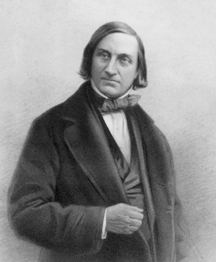A Quote by Antonin Scalia
Many think it not only inevitable but entirely proper that liberty give way to security in times of national crisis--that, at the extremes of military exigency, inter arma silent leges. Whatever the general merits of the view that war silences law or modulates its voice, that view has no place in the interpretation and application of a Constitution designed precisely to confront war and, in a manner that accords with democratic principles, to accommodate it.
Related Quotes
For as long as men and women have talked about war, they have talked about it in terms of right and wrong. And for almost as long, some among them have derided such talk, called it a charade, insisted that war lies beyond (or beneath) moral judgment. War is a world apart, where life itself is at stake, where human nature is reduced to its elemental forms, where self-interest and necessity prevail. Here men and women do what they must to save themselves and their communities, and morality and law have no place. Inter arma silent leges: in time of war the law is silent.
To the Jews, Rome constituted the quintessence of all that was odious and should be swept away from off the face of the earth. They hated Rome and her device, arma et leges, with an inhuman hatred. True, Rome had leges, laws, like the Jews. But in their very resemblance lay their difference; for the Roman laws were merely the practical application of the arma, the arms...but without the arms, the leges were empty formulae.
War is thus divine in itself, since it is a law of the world. War is divine through its consequences of a supernatural nature which are as much general as particular. War is divine in the mysterious glory that surrounds it and in the no less inexplicable attraction that draws us to it. War is divine by the manner in which it breaks out.
What is less often noticed is that it is precisely the kind of moral instruction that parents are constantly trying to give their children — concrete, imaginative, teaching general principles from particular instances, and seeking all the time to bring the children to appreciate and share the parent's own attitudes and view of life… The all-embracing principles of conduct
Is war an inevitable outcome of competing interests in a complex society? In other words, would war be the same even if human nature were very different? There are mathematical models of large groups working together that lead to conflict on a reliable basis. So there's a whole other view of war that is not psychological at all.
We don't want to impose our solutions by force, we want to create a democratic space. We don't see armed struggle in the classic sense of previous guerrilla wars, that is as the only way and the only all-powerful truth around which everything is organized. In a war, the decisive thing is not the military confrontation but the politics at stake in the confrontation. We didn't go to war to kill or be killed. We went to war in order to be heard.
There are two ways of resisting war: the legal way and the revolutionary way. The legal way involves the offer of alternatinve service not as a privilege for a few but as a right for all. The revolutionary view involves an uncompromising resistance, with a view to breaking the power of militarism in time of peace or the resources of the state in time of war.
































